And
You Don't Stop: 30 Years of Hip Hop
Producer
/ Director
Dana Heinz Perry
Director of Photography
Hart Perry
|
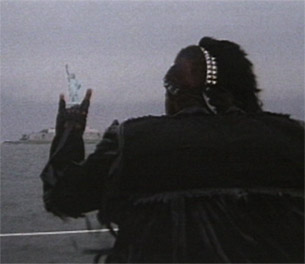
photo:
Afrika Bambaataa |
| Back
in the Day
Chronicles hip hop's birth in an impoverished and neglected section of
the Bronx and the establishment of the four elements of hip hop culture:
rapping, deejaying, break-dancing and graffiti. By the end of the hour,
hip hop is no longer confined to the ghetto. It has inspired a generation
of downtown rockers, begun to make inroads into the record business, ignited
feuds between some of its earliest stars and, back in the ghetto, at least
temporarily defused gang warfare. |
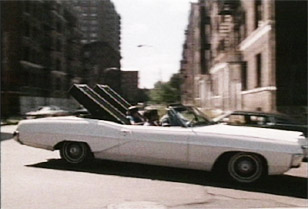
photo: Kool Herc / mobile sound system |
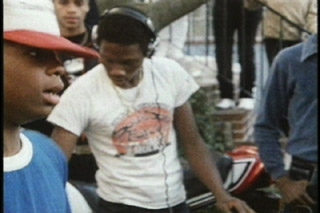
photo: Dj & b-boy |
Bring
the Noise
Details the evolution of rap into a national record business phenomenon.
Focuses on the rise of the decade's premier record label - Russell Simmons
and Rick Rubin's Def Jam - and of such seminal artists as Run-DMC, LL
Cool J, The Beastie Boys, Will Smith and Public Enemy. |
| Gangsta
Gangsta Chronicles
the rise of "gangster rap" in LA and the simultaneous eclipse
of "conscious rap" in New York - both of which styles were inspired
by the uncompromising black pride of Public Enemy. Describes how NWA emerged
from Compton at a moment when crack cocaine and street gangs were at its
devastating height. The show goes on to appreciate the drawl and good
humor of Snoop Dog, whose cars-and-girls oriented videos recalled the
glory days of the Beach Boys - and to wonder at Tupac Shakur's ability
to embody the thug, the revolutionary, the preacher, and the handsome
leading man in perplexing succession. It also tells the story of the origins
of Dr. Dre, the most influential record producer in hip hop. |
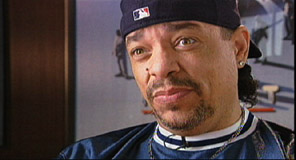
photo:
Ice-T |
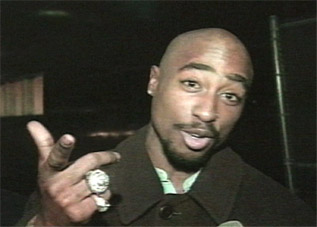
photo: Tupac |
Life
After Death
Some five years after the emergence of NWA, the East Coast finally begins
to develop its own gangsta rappers, including Nas and the Wu-Tang Clan
in addition to Biggie Smalls. It details the infamous "east coast
/ west coast" rivalry between Suge Knight's Death Row Records (Snoop,
Tupac, Dre) and Puff Daddy's Bad Boy Records (Biggie), and how artists
on both sides attempted to ease tensions even as Tupac and Biggie were
murdered. The episode concludes with the aftermath of the murders, the
rise of P. Diddy, Nas, and Jay-Z. |
| Hip
Hop America
Celbrates the explosion during the Nineties of hip hop talent from cities
other than New York and L.A., including Atlanta's OutKast, Eminem, Kid
Rock, Too Short, and Geto Boys. The hour also deals with the struggle
of female performers in hip hop - including Foxy Brown, Lil' Kim, Missy
Elliot, and Eve - and concludes by noting the contemporary influence of
hip hop in high fashion, advertising, professional sports, and politics. |

photo: Eminem |

photo: Nas |
|
| AWARDS:
CINE
Golden Eagle (Back in the Day)
Screenings
- Full Frame Film Festival |
"VH1
does for Rap what PBS did for the Civil War"
-
The New York Post 9/29/04
MORE
REVIEWS
|
|